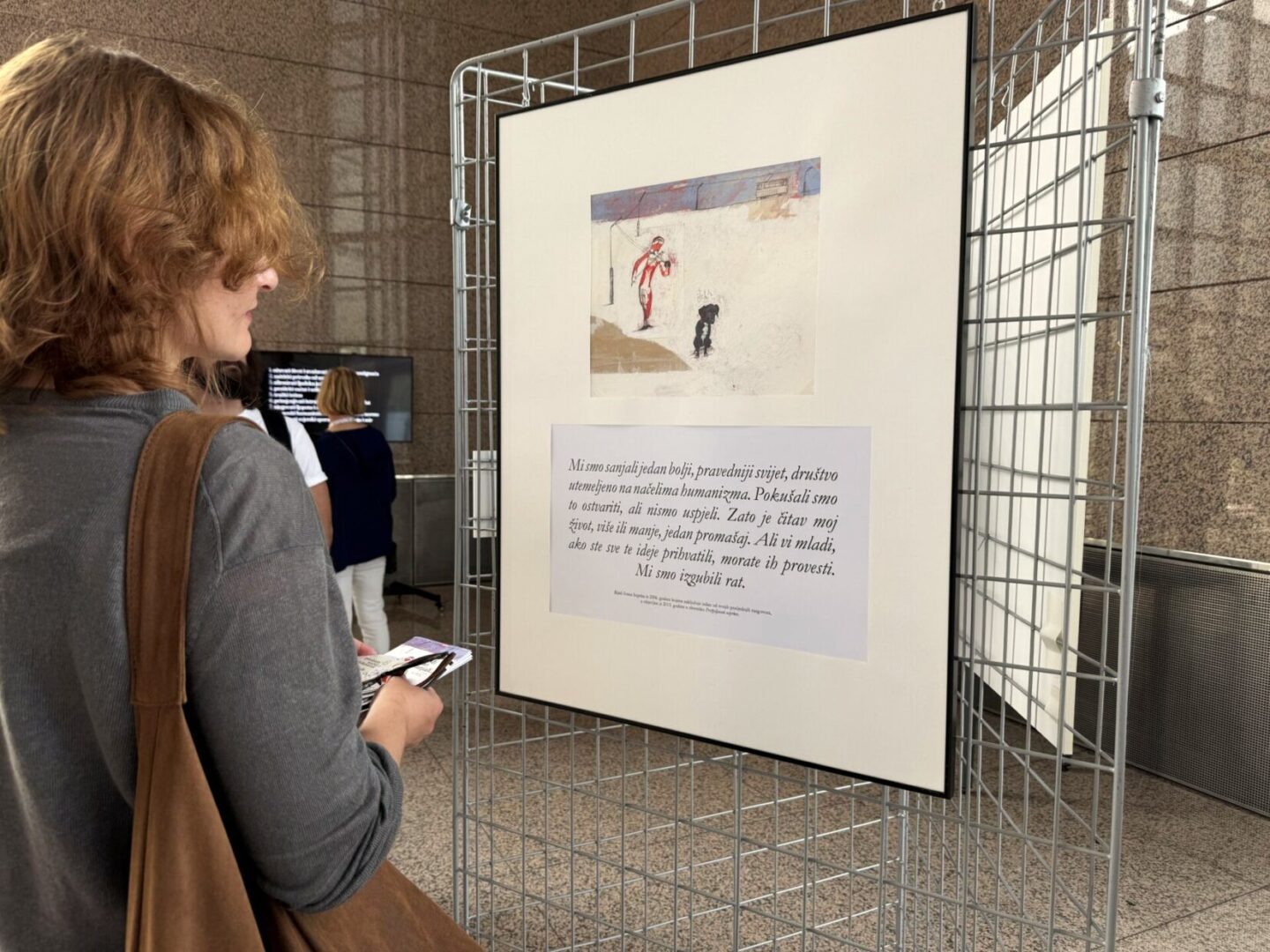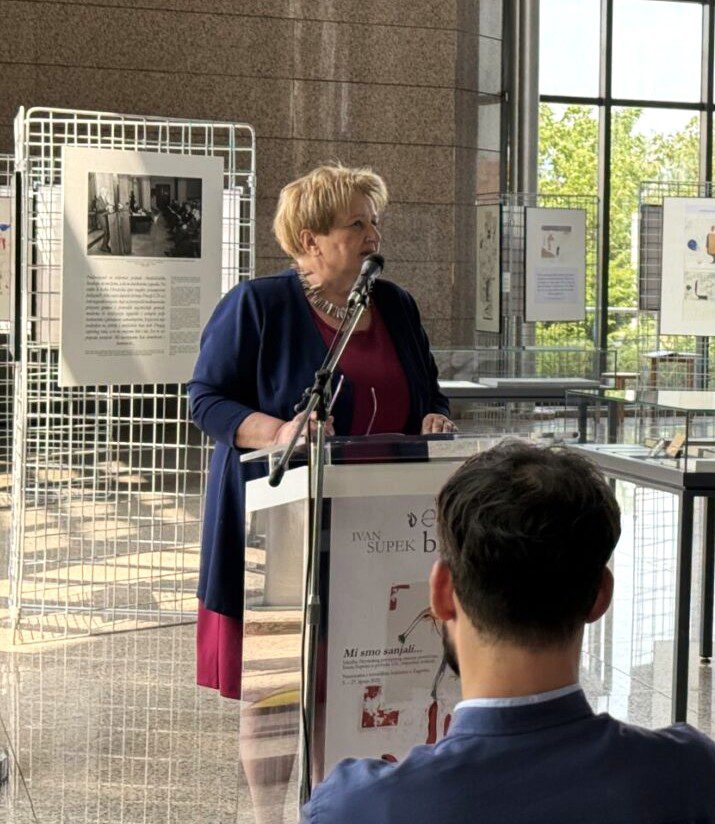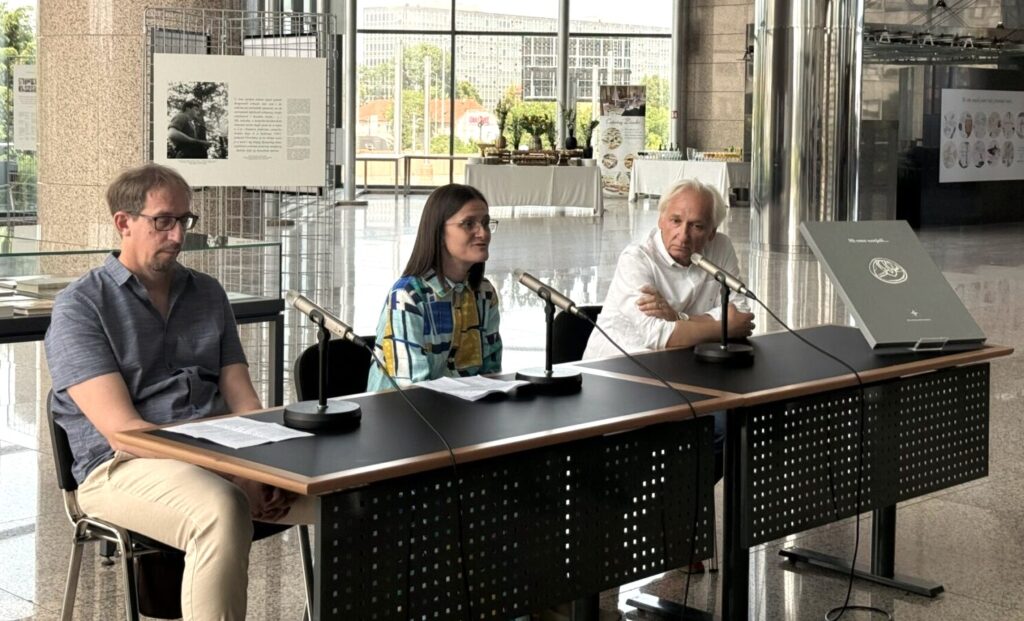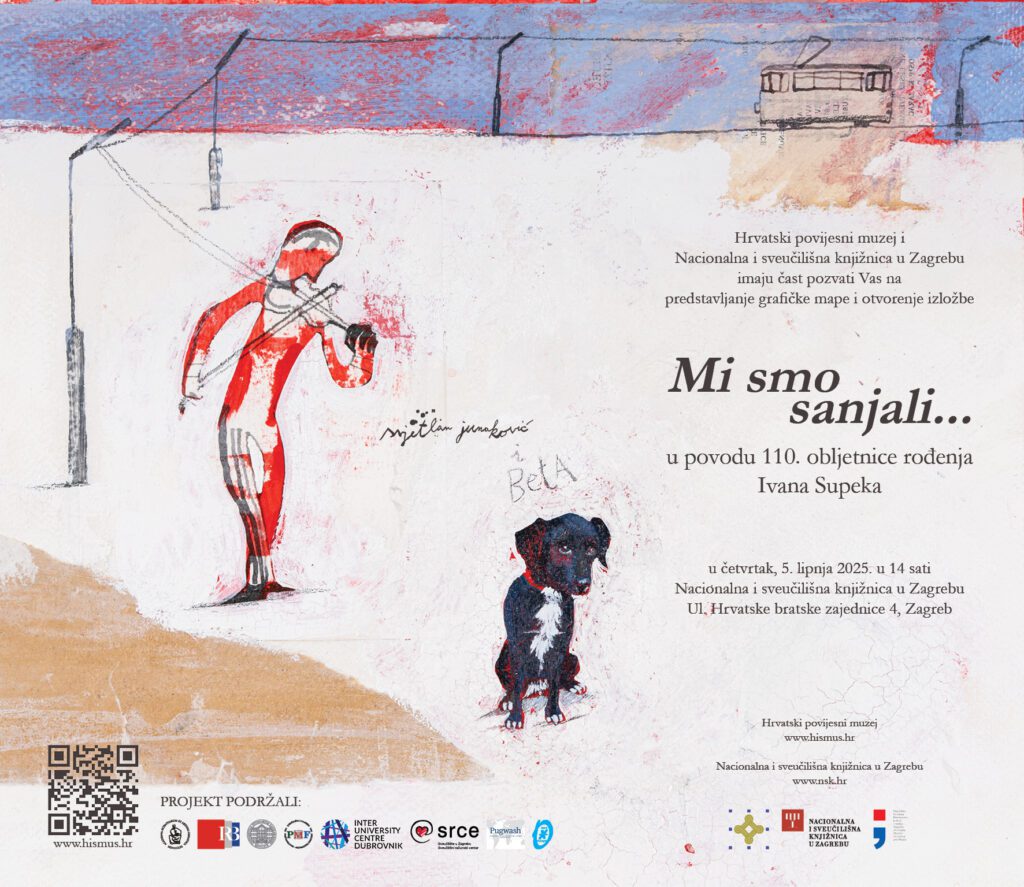“The world we dreamt of…” exhibition on view at NSK by 27 June 2025

On 5 June 2025, the National and University Library in Zagreb (NSK) hosted the opening of The world we dreamt of…, an exhibition commemorating the 110th anniversary of the birth of Ivan Supek (1915-2007), one of Croatia’s greatest 20th-cenutry minds. Organised by the Croatian History Museum with the support of NSK and the Museum’s other partners, the exhibition will remain on view by 27 June 2025.
At the exhibition’s opening, NSK Director General Professor Ivanka Stričević and Director of the Croatian History Museum Matea Brstilo Rešetar reminded the audience of the ideas and accomplishments of this great Croatian philosopher, physicist, writer, peace advocate and erudite, internationally famous for his struggle for a world based on the principles of humanism.


After a brief address in which she emphasised the relevance of Supek’s ideas in the context of today’s global developments and related challenges, State Secretary at the Croatian Ministry of Culture and Media Dražena Vrselja opened the exhibition.
The exhibition’s opening programme also featured a musical performance by Croatian violinist Val Bakrač.
A unique print portfolio spotlighting Supek’s humanistic principles
At the heart of the exhibition is a print portfolio by Croatia’s award-winning visual artist Svjetlan Junaković illustrating Supek’s ten humanistic principles. Published by the Croatian History Museum as its first such publication, the portfolio was presented by Junaković himself, while the exhibition and its preparation were presented by the exhibition’s authors Adviser at the Croatian History Museum Ana Filep and Senior Research Associate at the Ruđer Bošković Institute Dr Nikola Biliškov.

Apart from Supek’s writings in the field of theoretical physics, history of science and philosophy and his literary works, the material displayed at the exhibition also features photographs and memorabilia from the Museum’s collection brining interesting details about Supek’s life and work.
The exhibition programme also includes various locations in Zagreb where the posters illustrating values to which Supek dedicated his life bring to the attention of the public Supek’s appeals for everyone’s contribution to creating a better world for all people.
Honouring the visionary and advocate of kindness as the greatest human value
The work of this remarkable Croatian thinker, whose message and ideas are particularly relevant for the new generations in the context of today’s global issues, left an indelible mark on Croatia’s and the world’s intellectual history.
Supek founded the Ruđer Bošković Institute and led it as Croatia’s largest multidisciplinary research institution in the field of natural and biomedical sciences as its first director. He was the first professor of theoretical physics and of the philosophy of science at the University of Zagreb, of which he was a Vice-Chancellor between 1968 and 1971.

He was a Fellow of the Croatian Academy of Sciences and Arts and served as its 1991-97 President. Also, he headed several international initiatives addressing issues such as nuclear armament, in which context he was warning against it through various international platforms. Supek tellingly issued one of his first public appeals for recognising the threat that nuclear warfare poses to all life on Earth roughly a year before the world would witness the until then unseen destruction and almost instant killing of some 80,000 people as a consequence of the atomic bomb attack on Hiroshima.
Untiringly campaigning for world unity and against all forms of violence until the end of his life, he also took part in the founding of the Pugwash Conferences on Science and World Affairs organisation, along with the Nobel Prize winners Philip John Noel-Baker and Linus Pauling and other prominent 20th-century humanists and advocates of world peace was among the writers and signatories of the Dubrovnik-Philadelphia Statement and initiated and participated in many other peace- and disarmament-focused international initiatives.
